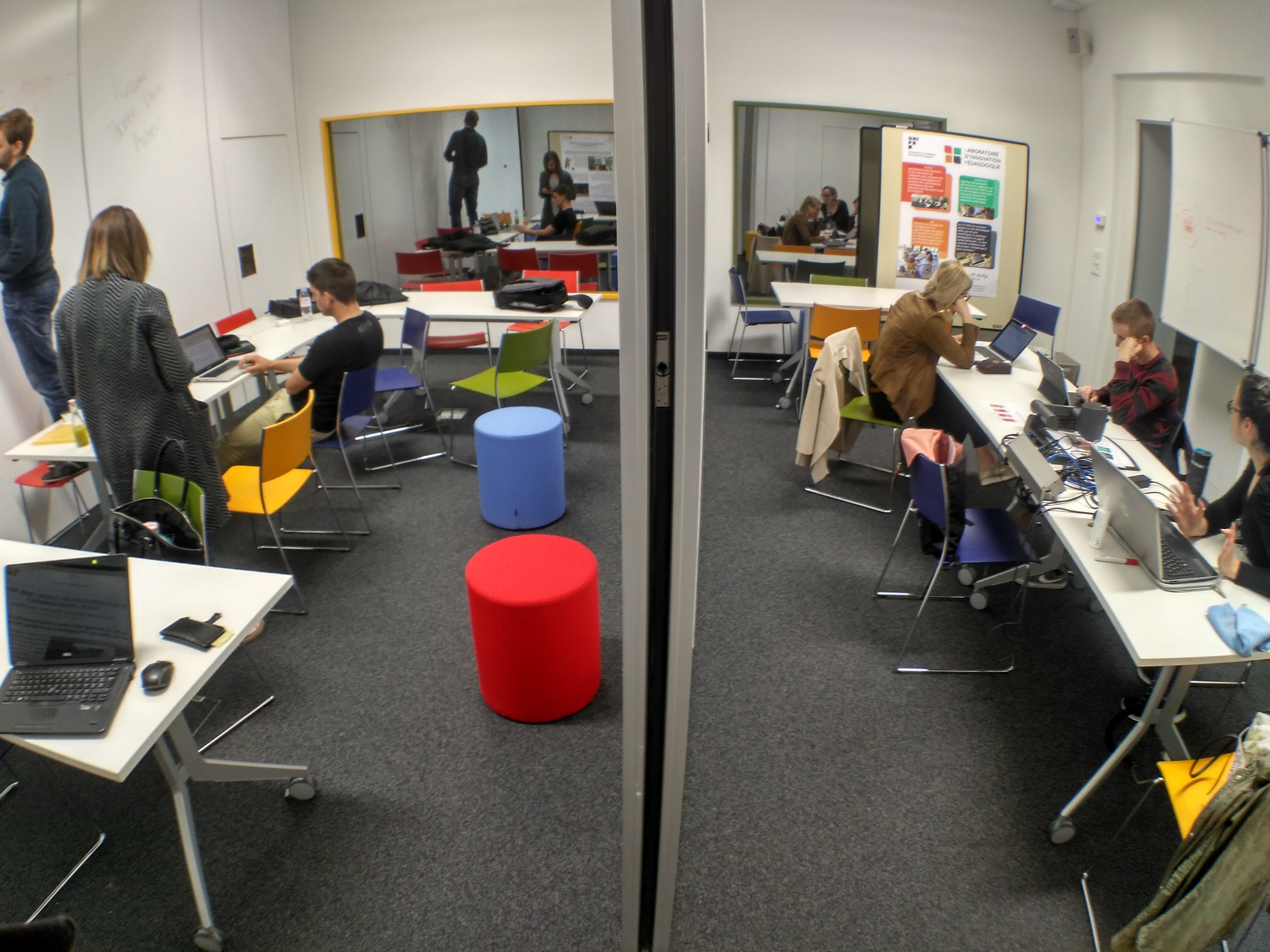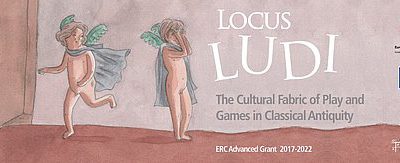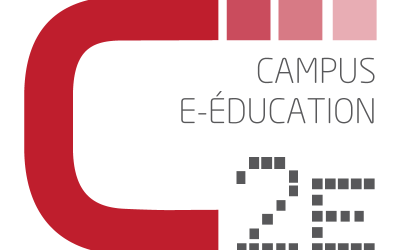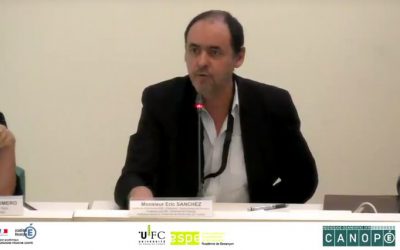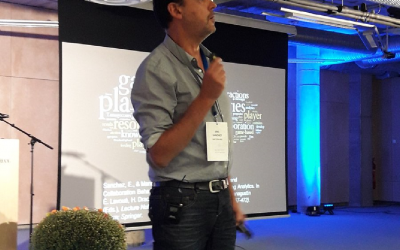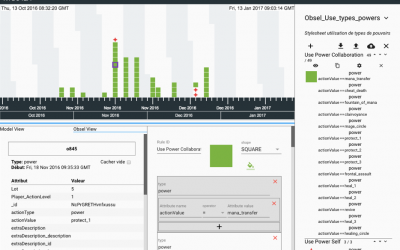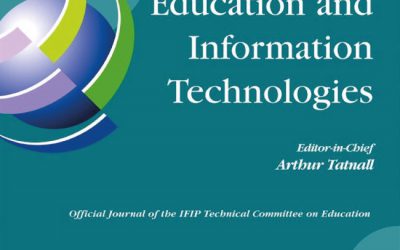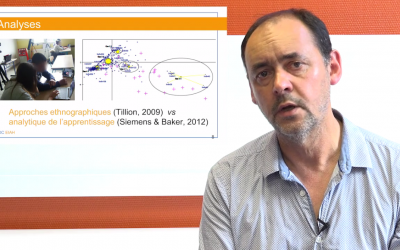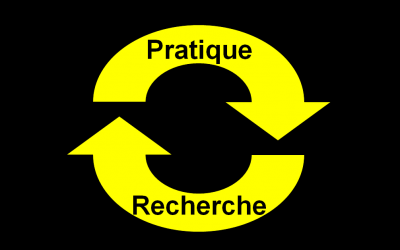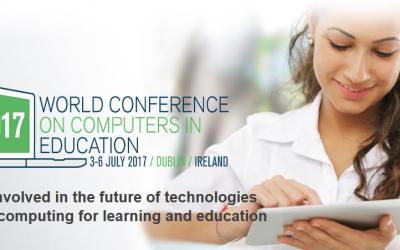co.LAB – A Digital Lab for the co-Design, co-Development and co-Evaluation of Digital Learning Games
Interest in Digital Learning Games (DLGs) has flourished at all levels of education. Digital Learning Games contribute to increasing students’ motivation and engagement, and are effective tools to support learner centered teaching practices. However, the design, development and uses of DLGs remain an issue due to the gap between teachers, game developers and researchers.
At the crossroads between educational and computer sciences the goal of the co.LAB project is to improve the design, development and uses of Digital Learning Games at all educational levels in Switzerland. This goal will be achieved by the development of what we call the co.LAB: a collaborative methodological framework between teachers, game developers and researchers in educational science, associated with a collaborative digital platform dedicated to co-design, co-development and co-evaluation of DLGs.
With the development, implementation and assessment of the co.LAB methodology and digital platform, we want to answer the following research questions (RQ).
RQ1: What methodology is needed to support collaborative DLG design and development?
RQ 2: What are the digital platform features necessary to support the collaborative DLG design and development process?
RQ 3: What are the effects of the methodology and digital platform on development cost and duration (efficiency)?
RQ 4: What are the effects of the methodology and digital platform on the quality of DLGs produced (relevance and effectiveness)?
RQ 5: What are the drivers for adoption of the methodology and digital platform by the educational, game developer, and research communities?
Following a design-based and mixed methodology, the co.LAB methodology and digital platform will be implemented and tested with the design, development and evaluation in real educational contexts of two showcase games dedicated to medical education (higher education) and computational thinking (secondary education). They will be used as a proof of concept. The experimentations will be carried out with classes both in a secondary school and at a university of applied sciences. The data collected will be based on an ethnographic approach on the one hand (questionnaires and focus groups carried out with stakeholders), and on the digital traces of users of the platform on the other hand.
By including a digital infrastructure for digital learning resources development and by providing, as a use test result, two digital learning games the project is fully in line with the PNR77 goals and more specifically with the module “Education, learning and digital change”. In addition, the co.LAB methodology, digital infrastructure and laboratory may serve both as an example of the introduction of digital in education and as a basis for future co-development of open digital educational resources in general.
Durée du projet
01/2020 – 12/2023
Financement
Fonds National Suisse

Requérants principaux
Dominique Jaccard HEIG-VD et Eric Sanchez, Université de Fribourg
Partenariat
Haute Ecole d’Ingénierie et de Gestion du Canton de Vaud
Membres du projet
Estelle Prior Unige
Mariem Jaouadi Unige
Membres associés
Nadine Mandran LIG/U. Grenoble
Matthieu Vermeulen IMT Nord Europe
Emmanuel Beffara U. Grenoble
Gaëlle Guigon IMT Nord Europe
Jérémie Humeau IMT Nord Europe
Anthony Fleury IMT Nord Europe
Contact
Eric Sanchez (eric.sanchez@unifr.ch)
Dernières actualités relatives à cette recherche
Retour sur la journée doctorale "Jeu et apprentissage"
Le LIP a participé à la journée doctorale "Jeu et apprentissage" qui s'est tenue à Fribourg les 26 et 27 octobre 2017. Cette journée qui a mobilisé 65 participant-es dont 17 doctorant-es. Elle a permis des échanges interdisciplinaires très riches qui se sont traduits...
La méthode du chocolat sur les brocolis
La semaine dernière, le LIP était présent lors de l'événement C2E 2017 à Poitiers (“L’Edutainment comme école parallèle”) pour clore la semaine avec une conférence intitulée : La méthode du chocolat sur les brocolis Résumé : Lorsque le projet d’enseigner se heurte à...
Intervention sur les recherches collaboratives à Besançon
Le 18 septembre 2017, le LIP s'est déplacé à Besançon dans le cadre de la journée de lancement du projet de « Maison universitaire de l’éducation ». Cette journée a été l'occasion de présenter le Laboratoire d'innovation pédagogique et les méthodologies mises en...
Le LIP à ECTEL 2017
Le LIP s'est déplacé à Tallinn (Estonie) pour présenter ses travaux sur la collaboration et la compétition dans les jeux lors de la 12th annual European Conference for Technology-Enhanced Learning (EC-TEL 2017). Le papier présenté a été publié dans les actes du...
3e édition du séminaire du CERF
Méthodologies de recherche dans les travaux consacrés au numérique pour l’éducation et la formation Le séminaire du CERF fournit un cadre permettant de conduire une réflexion sur les méthodologies de recherche en éducation. Une description du séminaire est disponible...
Le LIP présent au GT IHM pour l’Éducation à Poitiers
Le Laboratoire d'Innovation pédagogique était présentau GT Education de la 29e Conférence Francophone sur l’Interaction Homme-Machine qui s'est déroulé à Poitiers le 29 août 2017. Le GT “IHM pour l’Éducation”, soutenu par l’AFIHM, a été créé afin de constituer une...
Recherche orientée par la conception : une perspective praxéologique
Une nouvelle publication impliquant le Laboratoire d'innovation pédagogique en collaboration avec l'équipe EducTice de l'Institut français de l'éducation. Elle peut être consultée gratuitement en ligne pendant quelques temps. Sanchez, E., Monod-Ansaldi, R., Vincent,...
Recherche orientée par la conception
Cette vidéo a été réalisée pour le MOOC ORPHEE. Elle décrit ce qu'est la recherche orientée par la conception. Mooc Orphée Thématique 2 : Recherche orientée par la conception, EricSanchez from Réseau Orphée on Vimeo.
Articuler recherche et pratique dans le champ de l’éducation : qu’est-ce que la recherche orientée par la conception ?
La recherche orientée par la conception est l’héritière d’une longue tradition de recherches collaboratives qui impliquent chercheurs et praticiens La recherche orientée par la conception ou design-based research est l’héritière d’une longue tradition de recherches...
Présentation des premières analyses de Classcraft lors du WCCE2017 à Dublin
Du 3 au 6 juillet 2017, le LIP s'est déplacé à Dublin pour participer à la conférence WCCE2017. Le LIP a en particulier organisé un symposium intitulé "Game-based learning and gamification of learning and instruction" et auquel ont également participé des chercheurs...

